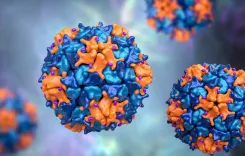How To Manage Egg Allergy
By Mia Evelyn
3 December 2022
People with egg allergy are most often allergic to the protein in egg white, which they’ll typically experience as hives, wheezing, or vomiting after eating them. It’s important to know if you have an allergy to eggs or if you just don’t like them because of the taste since this will determine what you should do and how you should prepare your food if you do have an egg allergy. In this article, we’ll cover the symptoms of an egg allergy, what causes it, and how to treat it so that you can enjoy eggs again safely.

What is an Egg Allergy?
An egg allergy is a food allergy that happens when the body's immune system mistakenly identifies the protein in eggs as something harmful, like an infection. The symptoms of an egg allergy can range from mild to severe, depending on how much of the allergen triggers a reaction. In some cases, people with an egg allergy might not have any reactions at all. If you think you're allergic to eggs, you must know what to look for and what your best course of action is. First, learn about the most common symptoms of egg allergies so you'll be able to recognize them quickly. They include hives or eczema after eating eggs, trouble breathing or wheezing after eating eggs, or vomiting within two hours after eating eggs.
Symptoms
An egg allergy is triggered when the body's immune system mistakenly identifies a protein in the egg as harmful, triggering an allergic reaction. The symptoms of an egg allergy vary from person to person, but often include one or more of the following: stomach aches, nausea, vomiting, diarrhea, hives (raised bumps on the skin), rashes (a type of skin irritation), breathing difficulties like asthma or wheezing. Egg allergies can be severe enough that they're life-threatening. Symptoms typically last no longer than two hours after eating eggs. The most severe reactions require immediate medical attention.

Causes
There are a few different factors that can lead to an egg allergy, but the most common cause is a previous reaction. If you have experienced any of these symptoms after eating eggs, you may be allergic:
- Hives or rash
- Sore throat
- Difficulty breathing
- Wheezing or difficulty breathing - Rapid heartbeat
- Loss of consciousness
If you think you might have an egg allergy, talk to your doctor as soon as possible about your concerns. They will be able to help determine whether or not you're allergic, which can help guide treatment decisions going forward.
Treatment
Most people develop egg allergies before age five. If you're allergic, certain proteins in eggs can trigger symptoms in your body that make you feel sick. The most common signs of an egg allergy are hives, swelling of the lips or tongue, trouble breathing, vomiting, diarrhea, or runny nose.
The best way to prevent an egg allergy is to delay introducing eggs into your child's diet until after their first birthday. Introduce them gradually and be sure to watch for any negative reactions.
If you've already developed an egg allergy as a child, the best way to prevent reactions is by carrying an epinephrine auto-injector (EpiPen) with you at all times so that you can treat a reaction right away.

Prevention
The best way to prevent egg allergy is by eating eggs. According to the American Academy of Pediatrics, If your child eats eggs as a baby, he's less likely to develop an allergy. If you are pregnant and have never eaten eggs before, it would be wise for you not to eat them during pregnancy or while breastfeeding. The reason being is that you don't know how your body will react so it would be better not to.
You Might Also Want To Read This
Popular Posts





